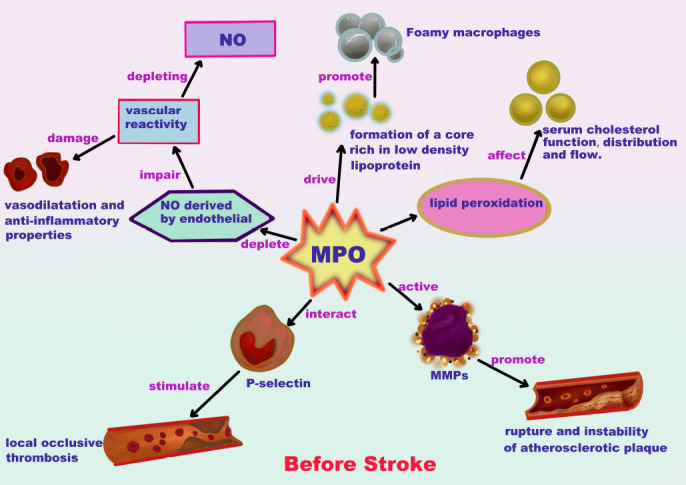Figure 1.

Response caused by myeloperoxidase (MPO) in blood vessels before stroke.
MPO may promote stroke due to damage to the arterial wall through direct oxidation and indirect effects on blood vessel integrity and function, driving a core rich in low-density lipoprotein and promoting the formation of atherosclerotic plaques by foamy macrophages. These plaques affect the function, distribution, and flow of serum cholesterol due to lipid peroxidation. The activation of matrix metalloproteinases leads to atherosclerotic plaque rupture and instability, which can stimulate local occlusive thrombosis through P-selectin interactions. Depleting nitric oxide (NO) can impair vasodilation resistance against inflammation and impair vascular reactivity.
